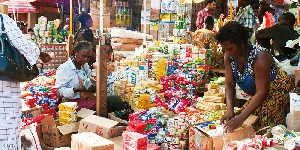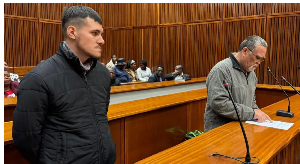The Wa Municipal Assembly has launched a 20-year Local Economic Development (LED) Master Plan for the Central Business District (CBD) aimed at redeveloping and fully harnessing the economic potentials of the districts towards job creation and faster poverty reduction.
This is necessary because the residential layout of the Municipality prepared as far back at 1974 has surpassed its significance for the current development trends within the CBD, therefore resulting in an increasing level of congestion along the major routes.
This is due to poorly sited temporary structures including kiosks, billboards, Telephone/Electricity poles and other street stuff, which are adversely affecting the security of lives and projects.
Again, the CBD apart from generating volumes of vehicular and human traffic also lacked adequate drainage outlets for liquid waste coupled with its dilapidated structures and poor landscaping.
Launching the LED Master Plan, Alhaji Tahiru Issahaku Moomin, the Wa Municipal Chief Executive (MCE), noted that the city with its undesirable state was privileged to be a beneficiary of the Ghana Secondary Cities Support Programme aimed at promoting sustainable, spatially integrated, balanced and orderly development of human settlements, providing adequate, safe, secure, quality livable city.
He said the Wa Municipality is among the 25 selected Municipal Assemblies across the country under the World Bank Project, adding that the project would further open up several business opportunities for the people of Wa, thereby improving on their living conditions.
Alhaji Moomin noted that mainstreaming of security and disaster preventions in urban planning and management systems; creating awareness of the greening of human settlements; facilitating the implementation of urban renewal programmes, and facilitating public-private partnerships in the development and maintenance of urban infrastructure within the CBD could not be relegated to the background by the city planning authorities tasked with the responsibility of redesigning the city.
He indicated that policy intervention would have to be implemented to upgrade the innermost part, including Zongo and other slum areas of Wa while preventing the occurrence of new ones.
“Such deliberate policy interventions should include introducing major slum renewal and redevelopment programme; strengthening and enforcing the legal and regulatory framework on slum development; encouraging the participation of city dwellers in improving infrastructure facilities; and promoting investment in social programmes, including education and training, supporting local businesses and culture as well as arts”.
Architect Anthony Bandome Dery, a Consultant to the Local Authority noted that with the project, they have the opportunity to change the phase of Wa, create the opportunity for businesses to flourish, protect the safety of pedestrians and motorists and also improve the drainage system to make the CBD attractive for people to visit and spend more time to boost the local economy.
Additionally, he said with the new outlook, technology would play a major part in promoting businesses located within the CBD.
Mr Rockson Niminga-Beks, the Physical Planning Officer for the Wa Municipal Assembly, said the current outlook of the CBD is just the makeup of compound houses.
He said once in a while a Landlord would then decide to convert a portion of his compound house into a shop for people to rent to run their businesses, adding such businesses and other operation on containers could not expand.
Local Economic Development according to Ghana’s National Decentralization Policy (2010), is the process by which local governments, local businesses and other actors outside the locality join forces and resources to enter into new partnership agreements with each other to create new jobs and stimulate economic activities in the Municipalities, towns and villages.
Business News of Thursday, 12 November 2020
Source: GNA













